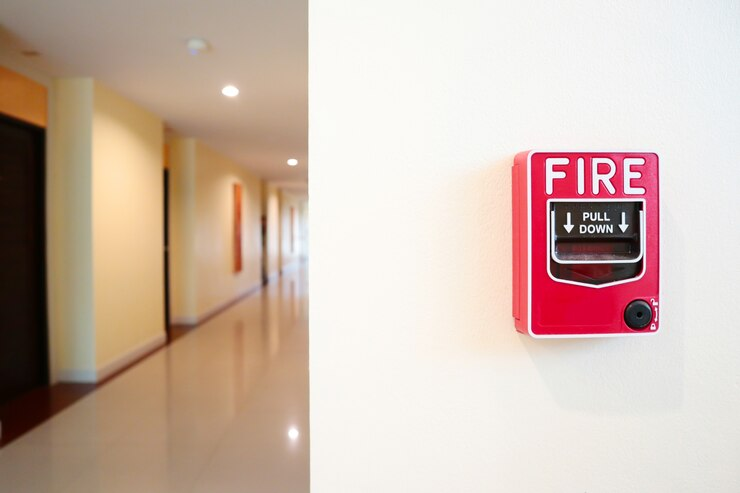We know what the best fire safety tool is, whether it’s at home or the workplace. It’s prevention. If that fails, then early detection is a close second. And for that, we need a fire alarm system. But what kind? Should you go wired or wireless? It’s not an easy question, so don’t expect an easy answer. Still, we’ll do our best to make it a bit less complicated.
Wired Version
Wired systems have been the traditional choice for many years – and for obvious reasons. How do they work? They use physical wiring to connect all the components, including smoke detectors, heat detectors, the control panel, and alarms. Why are they a good choice? Let’s take a look:
Reliability: As complex and problematic as they may be, there’s no denying they’re extremely reliable. Since they rely on physical connections, there is less risk of signal interference. That’s exactly what makes them a dependable choice, particularly in larger homes or buildings where signal strength might be an issue.
Power Supply: Wired systems typically draw power from the electrical system of your house, which means there’s no need for replacing batteries. Most models do feature a battery-powered system as a backup.
Maintenance: While wired systems are reliable, maintenance is no walk in the park. If there’s a problem with the wiring, it can be difficult to locate and repair the issue. Also, the installation process itself is not exactly easy.
Wireless Version
Wireless fire alarm systems are a more modern solution with several benefits, particularly when it comes to installation and flexibility. How do they work? These systems are based on well-known technology using radio frequency signals to communicate between components.
Installation: One of the biggest advantages of wireless systems is their ease of installation. No need for extensive wiring, you can set up a wireless fire alarm system quickly and without tearing your walls apart. This is great for older homes or rented properties where you want to avoid making any large-scale structural changes.
Flexibility: Wireless systems offer great flexibility. It’s easy to add or move detectors and alarms as needed, making them ideal for expanding or reconfiguring your home. This scalability means your fire alarm system can grow with your needs.
Smart Home Integration: For the most part, you can integrate these systems with your home automation system and monitor and control your fire alarms through your smartphone or other devices. This means peace of mind, as you can receive alerts and manage your system even when you’re not at home.
Maintenance: While wireless systems offer many advantages, they do rely on batteries for power. This means you’ll need to regularly check and replace batteries to make sure your system works properly. But it’s not all on you – most modern wireless systems will notify you when battery levels are low.
What’s the Right Choice?
Your needs, budget and circumstances are more important here than features, flash and positive reviews. The best and most advanced feature will not be any good if it doesn’t fit your settings. Generally speaking, wired systems are highly reliable and may be a better choice for larger homes or situations where signal interference is a concern. They are also more suitable for new constructions where wiring can be easily integrated. Wireless systems, on the other hand, are much easier to install, and maintain and offer plenty of flexibility. They are a great choice for existing homes, apartments, or rented properties where running wires may be impractical or impossible. If you’re a fan of modern technologies, you can also add it and integrate it with the existing smart home system.
All About Perspective
Both can be the way to address your problems, and it’s important to understand the differences to be able to make an informed decision at the end of the day. It’s best to gain the minimum knowledge and then simply talk to a professional and see what they have to say. Also, don’t forget an alarm is only part of your fire safety system, you’ll definitely need a fire extinguisher. Set your budget, think about your situation, needs and preferences. Only then can you make the right decision.

Ruby Stauffer is a prominent technology blogger known for her insightful analysis and in-depth reviews of the latest tech trends and gadgets. Her blog has become a go-to resource for tech enthusiasts seeking reliable information and expert opinions on the ever-evolving world of technology.

